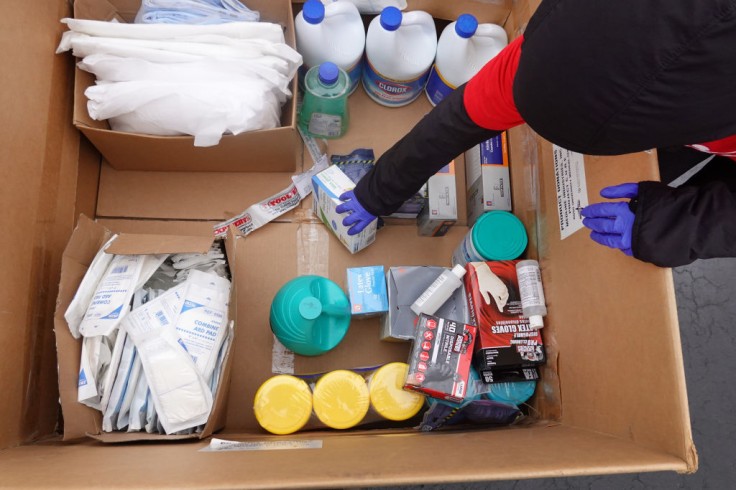
Did you know that the fatality rate for accidental poisoning in children has dwindled in the past decades? But things quickly changed during the pandemic as cases of children dying from accidental ingestion of common household items like bleach, small batteries, and narcotics have had an uptick during the lockdowns.
According to the Annual Report on Pediatric Poisoning Fatalities and Injuries of the U.S. Consumer Product Safety Commission (CPSC), deaths caused by accidental poisoning in kids were up by 26 percent or 43 cases for 2020, at the height of COVID-19 stay-at-home orders. Before the pandemic, there were only 17 cases among the kids.
Half of the accidental deaths were cases of children overdosing on narcotics like opioids or medications like antidepressants, which they found at home. Yet battery-related ingestion in kids ages 5 to 9 also increased by 62 percent, while ingestion of cleaning products, such as bleach, was up by 72 percent.
The CPSC said that the uptick was likely because families were mostly cooped indoors, increasing the risk of accidental poisoning. During this time, the use of bleach and disinfectants were also heightened as families tried to protect themselves from the virus.
Read Also: Half of U.S. Adults Have Low IQ Due To Leaded Gasoline Exposure as Children, Study Reveals
Preventing Accidental Poisoning in Kids
Annie Buckland, a registered nurse and injury or violence prevention coordinator from Topeka, said that accidental poisoning could be prevented when families know what they have at home and childproof these items.
Speaking with WIBW, the nurse reminded parents or carers never to assume that a child will know never to touch cleaning supplies or open pillboxes they find inside grandma's bag because they are always curious. Instead, parents need to make that extra step and be sure to lock up these common household products away from the easy reach of young children.
If the parents suspect that a child has ingested a harmful substance, they need to call 911 and the Poison Control Hotline at (800) 222-1222. The nurse said that the longer the poison stays inside the body, the "more havoc it can create," so parents should quickly act on it.
She advised against doing an internet search because this will only waste precious minutes, especially since the parents have no idea what to search for. The Poison Control Hotline has experts ready to guide while the family waits for the paramedics from 911.
On the other hand, Emily Kumlieno of UW Health also reminded parents that some medications in "child-resistant" packaging are not "child-proof"; thus, these should be placed in proper containers or cabinets with locks after every use. She advised putting the Poison Control Hotline on speed dial.
Toxic Chemicals in COVID-19 Home Test Kits
Meanwhile, according to Verify This, some at-home test kits for COVID-19 may contain a small amount of a toxic chemical called sodium azide. This works as a preservative agent for the vial kits, which can act rapidly without any odor. If sodium azide is accidentally swallowed, it could trigger headaches, dizziness, low blood pressure, and heart palpitations.
However, poison control experts said that the test kits are safe if stored and used correctly inside containers that are out of reach from kids or pets. The kits must never be unsealed unless used immediately. Always read the instructions carefully before using the test kits and dispose of them properly.
Related Articles: Doctors Advise Parents What to Do if Their Children Accidentally Eat Marijuana Edibles